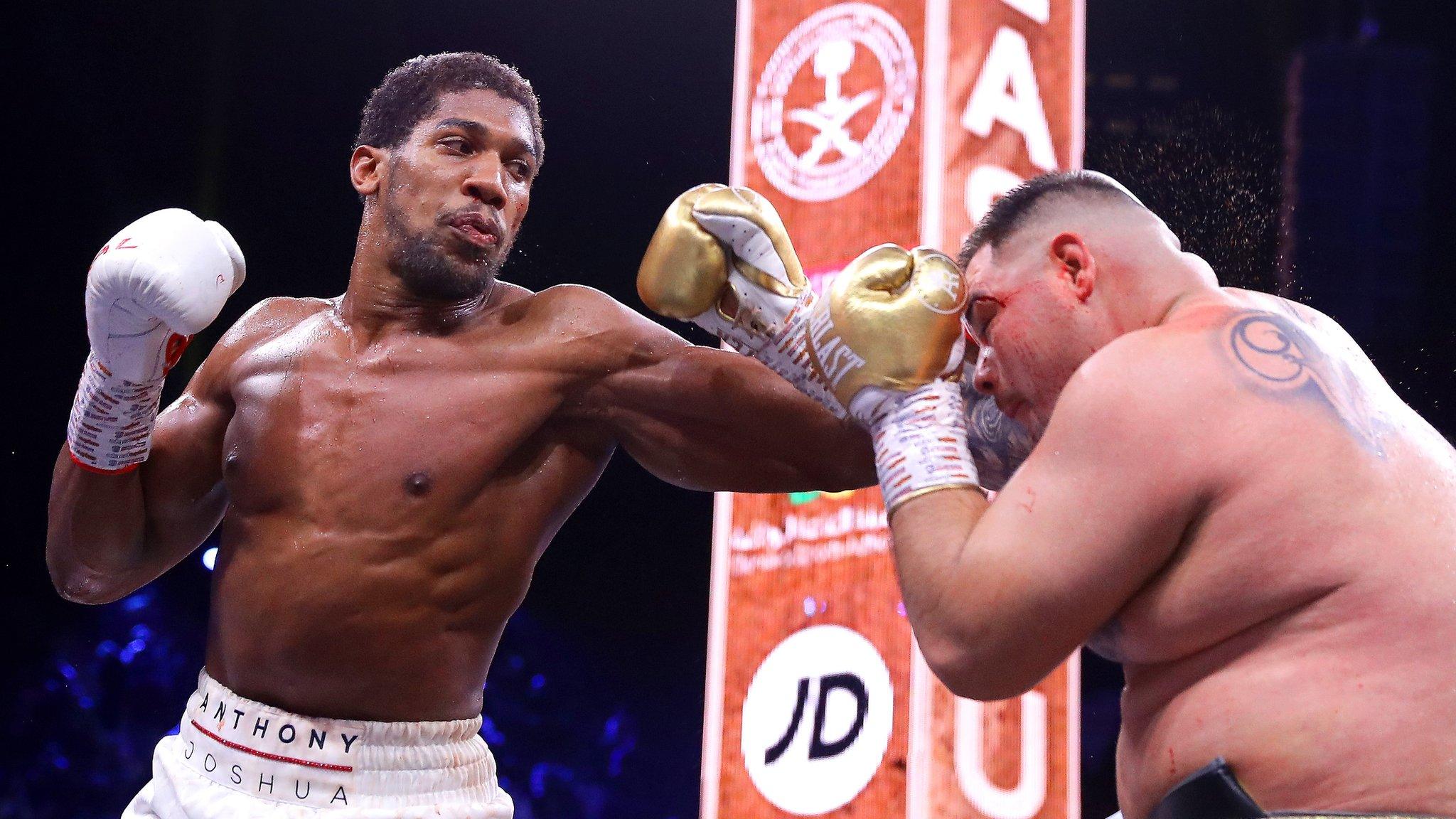Doping in boxing: Bob Arum keen to fund Vada testing to help tackle doping
- Published
Bob Arum: Vada taking control of drug testing "would be a very good thing"
Hall of fame promoter Bob Arum is ready to help fund the Voluntary Anti-Doping Association to take control of the fight against doping in boxing.
Vada is paid for by fighters or promoters on a fight-by-fight basis.
The body also works alongside local agencies such as UK Anti-Doping (Ukad) and state commissions in the USA.
But following high-profile doping cases in boxing Arum wants "uniform standards" and believes other promoters will back paying for Vada year-round.
"I found Vada to be extraordinarily good at drug testing and very honest," the 87-year-old, who has worked with the likes of Muhammad Ali, Floyd Mayweather and recently Tyson Fury, told BBC Sport.
"If they took over drug testing for all of professional boxing, even if it meant putting a tax on proceeds to enhance how frequently they can test, I think that would be a very good thing.
"The boxers shouldn't pay for it from their pay cheque. The fund probably could be a tax on promoters based on gate receipts or a tax on promoters based on television revenue. It's very do-able.
"What's happened up to now, particularly in the US, is state commissions are all over the place. I really think you need uniform standards and that Vada should be the be all and end all, and the testing must be random.
"With these designer drugs, fighters can take them, then sign for a fight and in the course of a week or so, the trace of the drug disappears but the effect is there. We know all the tricks and Vada knows the tricks."
Las Vegas-based Vada only operates in boxing and mixed martial arts and claims localised testing "is not comprehensive, rarely unannounced and not a deterrent".
'Rivas victim of terrible mistake'
The issue of doping in boxing came to the fore again when American Jarrell Miller's failed tests prevented him facing Anthony Joshua on 1 June, and when British heavyweight Dillian Whyte tested positive for a banned substance before facing Oscar Rivas on 20 July.
Whyte's positive test was conducted by Ukad in late June but the Brixton fighter passed all his Vada tests, which cost around £23,000 and were conducted from 26 April until 21 July.
The substance found in Whyte's test has not been officially confirmed and the results of his 'B' sample are not yet known.
Whyte was allowed to face Rivas after being cleared by an independent panel on the day of his bout but the fact his Colombian opponent was never made aware of the failed test has seen his promoter, Ukad and the British Boxing Board of Control face criticism.
His promoter Eddie Hearn said Whyte had a contractual right to fight when he was cleared by the anti-doping panel, while the BBBoC has emphasised its protocol is to leave anti-doping procedures, decisions, sanctions and suspensions in the hands of Ukad.
Arum believes the confusion in how Rivas was dealt with has contributed to a "trepidation" among overseas fighters in coming to compete in the UK and says he has reservations of his own about bringing decorated lightweight Vasyl Lomachenko to Britain to face Luke Campbell on 31 August.
"Ordinarily I wouldn't be concerned but ask me if I am and damn right I am because I don't trust the British board," Arum added.
"Commissions, whether it is in the US, or the British Boxing Board of Control - who in this area look totally inept - I think it would be a good thing to have an internationally recognised body taking over the testing problem.
"I was very upset with what I read with the Whyte situation. What made me upset was not the ultimate decision to let him fight but the fact that the opponent was never given any notice that Whyte had tested positive at least in his 'A' sample. That was absolutely wrong.
"You don't do that to an opponent. Whoever handled this made a terrible, terrible mistake. This is a serious business - guys can get hurt. Give the fighter notice and let him also be in on the decision.
"Boxing needs a standard on drug testing. It has to be addressed right away, as early as next week. This is a serious, serious problem."
- Published7 December 2019
